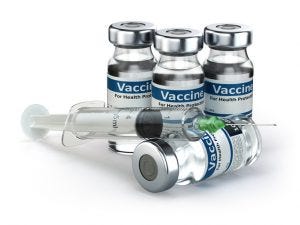August 2, 2019

Vaccines cost too much to make according to Univercells, which aims to have a novel platform ready for commercial-scale production by 2020.
Vaccines have had a dramatic impact on human health. One recent study argued that vaccine development “represents humankind’s most important and successful endeavor… over the last 200 years” [1].
Many diseases that caused millions of deaths in generations past have been stopped in their tracks by industry-supported vaccination programmes run by entities like World Health Organization (WHO), UNICEF and the GAVI Alliance.

Image: iStock/Bet_Noire
The authors wrote, “The World Health Organization (WHO) estimates that vaccinations for diphtheria, tetanus, whooping cough and measles currently prevent 2–3 million deaths per year.
“Smallpox was once one of the most feared diseases, until the implementation of global vaccination programmes enabled it to be declared eradicated in 1979. This eradication cost approximately 100 million US dollars ($US), but is estimated to generate annual savings of 1.35 billion $US.”
Production cost
The key to any effective vaccination programme according to the Bill & Melinda Gates Foundation is ensuring the widest possible access by reducing production costs.
To that end the Foundation funds research into improved production methods through its “Grand Challenge” grants.
Spokesperson Marie Jourdan told us about Univercells involvement in one such programme explaining that, in collaboration with Batavia Biosciences and Merck Millipore’s Natrix unit, the firm developed a novel polio vaccine production platform.
“Univercells developed a proposal based on its innovative process design which intensifies cell culture and viral production, enabling drastic reduction of bioreactor equipment size.
“This would enable the entire production process to be contained in closed micro-environment, in this case isolators ensuring process and environment safety, eventually simplifying manufacturing facilities for drastic costs reduction,” she added.
NevoLine bioproduction system
The platform – called the NevoLine bioproduction system – consists of a high-density fixed-bed bioreactor. Jourdan told us it has a much larger surface for cell growth than current technologies, meaning bioreactor size is decreased 20 to 40-fold compared to process based on micro-carriers.
Jourdan said “A large-scale NevoLine system including a scale-X bioreactor with 600m² growth surface would yield 575,000 doses of trivalent polio vaccine per batch. The entire system benefits from a very low footprint <10m², leading to a simplification in clean rooms and facility designs, for a drastic impact on required capital investment.”
The plan now is to make the system ready for commercial-scale production Jourdan said, “Benefiting from a $4M grant extension, Univercells and Batavia are currently working on process scale-up to reach final commercial-scale production by 2020.”
The technology also has wider application. In June Univercells announced it had received a second grant from the Foundation to leverage the technology for Measles and Rubella vaccines.
There is also scope to use the design processes that created the system to develop other biomanufacturing systems according to Jourdan.
“Such process design is also being applied to biomanufacturing of biotherapeutics such as biosimilar antibodies, where drastic cost reduction could also lead to a noticeable impact on product availability, may it be in developed economies and low and middle-income countries.”
About the Author
You May Also Like







